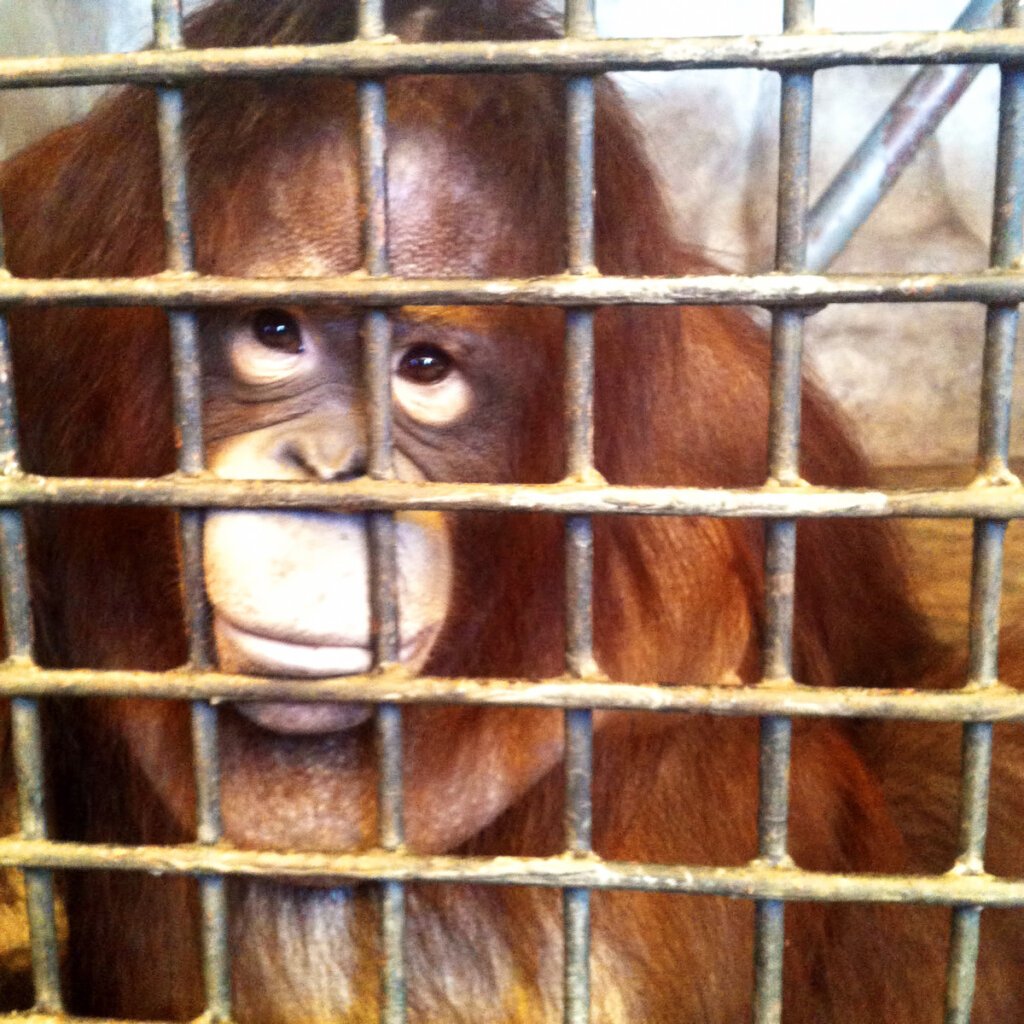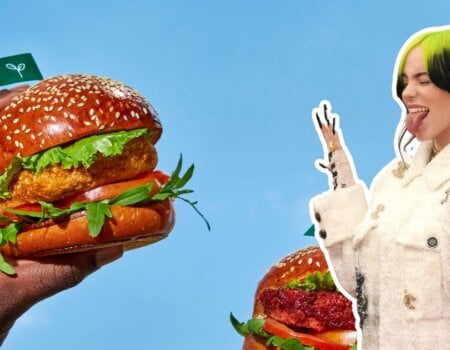25 Reasons to Go Vegan In 2025
The Christmas tree is coming down, and the gyms are filling up, which can only mean one thing—a new year, and all the resolutions that come with it.
With the champagne bottles empty and the celebrations over, January is the ideal time of year to reflect on our habits and determine to do better. While some changes (like promising to stop hitting the snooze button) are hard, others— like going vegan— are easy and incredibly powerful.
From saving animals to helping reduce your cancer risk, here are 25 reasons to turn over a new leaf in 2025!
- Animals are sentient individuals, and speciesism is silly. Like humans, other animals, regardless of their species, experience emotions and can feel physical pain. The lines we draw between humans and other animals – and between different species – are imaginary. Logically, there’s no reason to treat a pig any differently from how we’d treat a dog. If you wouldn’t like to be treated the way farmed animals are, you already believe in going vegan.
- Veganism helps fight climate change. Farming animals is responsible for 65% of the world’s nitrous oxide emissions, which have a warming impact 296 times greater than carbon dioxide. It’s also a huge source of methane, a greenhouse gas with 80 times the warming power of carbon dioxide over the first 20 years after it reaches the atmosphere! Meanwhile, eating vegan can reduce your carbon footprint from food by up to 73%.
- Vegan eating opens up a world of creative cooking. Don’t just char the body parts of the same four animals. Make meringue from a can of chickpeas, scramble some tofu, and turn cashews into cheese. Vegan cooking is inventive!
- Fishing is more harmful than you think. Aside from dredging the seabed and killing billions of animals, from fish and prawns to dolphins and turtles, fishing trawlers generate about one gigaton of carbon dioxide annually, almost the same as the entire aviation industry.Everyone is happy to ditch straws, but 640,000 tonnes of discarded fishing gear enter our oceans yearly. Aside from contributing 10% to 50% of marine plastic,this “ghost gear” continues killing animals.
- Veganism can improve your health. Red and processed meats are recognised carcinogens, whereas plants are rich in phytochemicals, which your immune system needs to fight diseases like cancer.An animal-free diet can also help you avoid heart disease. Swapping daily processed meat for daily nuts or legumes has been found to lower the risk of cardiovascular disease by 25%.
- Bodily autonomy is for everyone. Female animals bred for food are repeatedly forcibly subjected to forced manual impregnation, and male animals are forced to ejaculate through human manipulation or electric shock.Female animals are viewed by the industries they’re trapped in as little more than egg, milk, and baby-making machines. Feminism is veganism!
- Gambling on animals kills. Last year in Australia, 151 horses and 118 greyhounds died on racetracks. Betting on animals’ lives condemns them to a life of suffering, injury, and often an early death. It’s time for Australia to follow New Zealand’s lead and end greyhound racing, along with horse racing!
- Going vegan can help address world hunger. Almost 800 million people globally currently face hunger, but it’s not because there’s insufficient food; it’s because of how we divert crops. We already produce enough food to feed 10 to 14 billion people, but over a third of our crop calories are fed to the animals we eat.
- Animal agriculture is thirsty. Australia has seen more than its fair share of drought, and freshwater shortages are a global issue.Those eating only vegan foods use 54% less water than those with meat-heavy diets.
- Feathers are as cruel as fur. Birds exploited for their feathers are factory-farmed and either painfully live-plucked or violently slaughtered and then plucked. Investigations into ostrich slaughter companies in South Africa reveal egregious cruelty to birds used for their feathers. From London to Helsinki to Melbourne, fashion festivals everywhere are banning feathers on animal welfare grounds.
- Animal testing is bad science. Aside from being cruel, animal experimentation impedes scientific advances. Over 90% of “highly promising” basic science discoveries – most of which are based on animal studies – fail to enter clinical use within 20 years, wasting time and money and holding us back from finding health solutions.
- Going vegan is a way to challenge social imbalances. Social justice is about dismantling industries and systems that profit from oppression. In the animal agriculture industries, animals are commodified and reduced to living machines. Industrialising animals is an egregious abuse of sentient individuals, so a small percentage of humans can get rich.
- The Amazon rainforest is at stake – and so is the Great Barrier Reef. Cattle ranching for beef and leather is responsible for 80% of the deforestation of Brazil’s precious Amazon rainforest, while climate change, driven by meat production, is warming reefs and causing coral deaths and runoff from Queensland’s beef farms is bleaching the Great Barrier Reef.
- Wild-animal skins are nasty. Nailed to trees, bludgeoned, skinned alive – snakes, ostriches, lizards, alligators, and crocodiles suffer immensely for the wild-animal skins used by fashion brands like Hermès and Louis Vuitton. David Jones has said “no” to wild-animal skins, and so can you!
- Avoiding animal-derived foods can boost sex drive. That emoji isn’t an eggplant for nothing! Studies show those who don’t eat animal-derived foods enjoyed a 383% rise in libido and that eating vegan improves erectile function.
- Fish have feelings. It’s well established that fish can feel physical pain, but they also have rich social and emotional lives. Fish can recognise individuals and use tools. Some even make beautiful art to woo a prospective mate.
- Factory farms breed deadly pandemics. Keeping animals in crowded sheds where they stumble over corpses and stand in their own waste is a recipe for creating pathogens. These can spread to humans and cause pandemics. Bird flu and swine flu are warnings: we must stop breeding animals for food.
- Wool isn’t green or kind. Sheep within the wool industry are abused from the day they’re born until the day they die an early death. As lambs, sheep are subject to painful live lamb cutting, where swathes of the skin around their buttocks are sliced off. They also have their tails removed. PETA entities have now released 15 exposés of over 150 wool industry operations in seven countries on four continents, revealing abuse at every single one. When their wool production drops, sheep are shoved onto live export ships or slaughtered locally.
- You’ll drink fewer white blood cells. Yep, you read that right. In Australia, dairy milk can legally contain 400,000 somatic cells (white blood cells) per millilitre. High somatic cell counts usually indicate the presence of a mastitis-causing pathogen (infection of the udder).
- Being vegan helps the oceans. Fishing is destroying the oceans, and agricultural runoff from factory farms and other industry practices creates ocean dead zones (areas where a lack of oxygen means lifeforms can’t survive), which are exacerbated by global heating. Additionally, commercial fishers kill millions of tonnes of non-target marine animals, including whales, dolphins, sea birds, and turtles, each year.
- You can boost your athletic performance. As the impressive documentary The Game Changers, starring Jackie Chan, Lewis Hamilton, and Arnold Schwarzenegger, proved, eating vegan is a shortcut to peak athletic performance.
- There’s a homeless animal crisis. Veganism isn’t just about who you eat; it’s about how you view animals. Buying animals commodifies them and harms animals awaiting rescue. There are 328,000 homeless cats and dogs in Australia alone. Buying companion animals from pet stores and breeders adds to the problem.
- Animals aren’t taxis. Your love for animals may not take a holiday, but when you do, make sure you avoid tourist traps that exploit animals. Investigations have found that camels, horses, and donkeys used to give rides and transport sightseers are routinely neglected and abused.
- Veganism is easier on your wallet. Vegan staples such as fruits, vegetables,beans, nuts, and grains are cheaper than animal-derived foods, and thanks to demand, vegan upgrades to meat and dairy are getting cheaper all the time!
- “Humane” and “High Welfare” labels are just marketing ploys. These assurances are really a way of making consumers— not animals— more comfortable. Two-thirds of the more than 70 billion animals raised and killed for food each year are factory farmed—kept in filthy factory farms with barely any space or natural light. Even on RSPCA-assured farms, chickens have their beaks painfully sliced off, mother pigs languish in farrowing crates, and fish are farmed in huge, crowded tanks.
Inspired to go vegan? Sign up for the Vegan Challenge! Over the next 30 days, we’ll send you e-mails with information and tips on vegan living. It’s free and you can unsubscribe at any time.
Help Animals in 2025: Renew Your PETA Membership!





